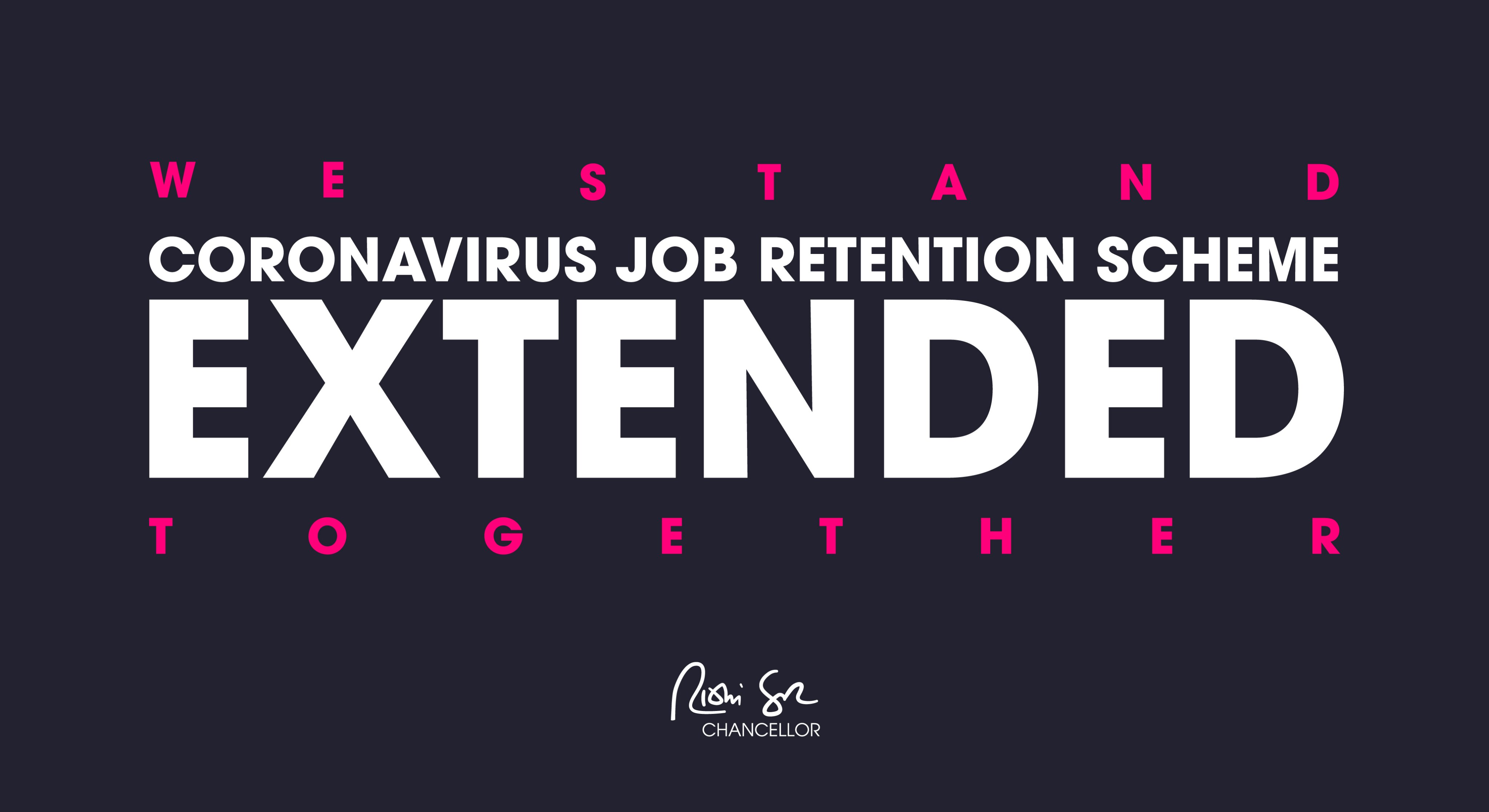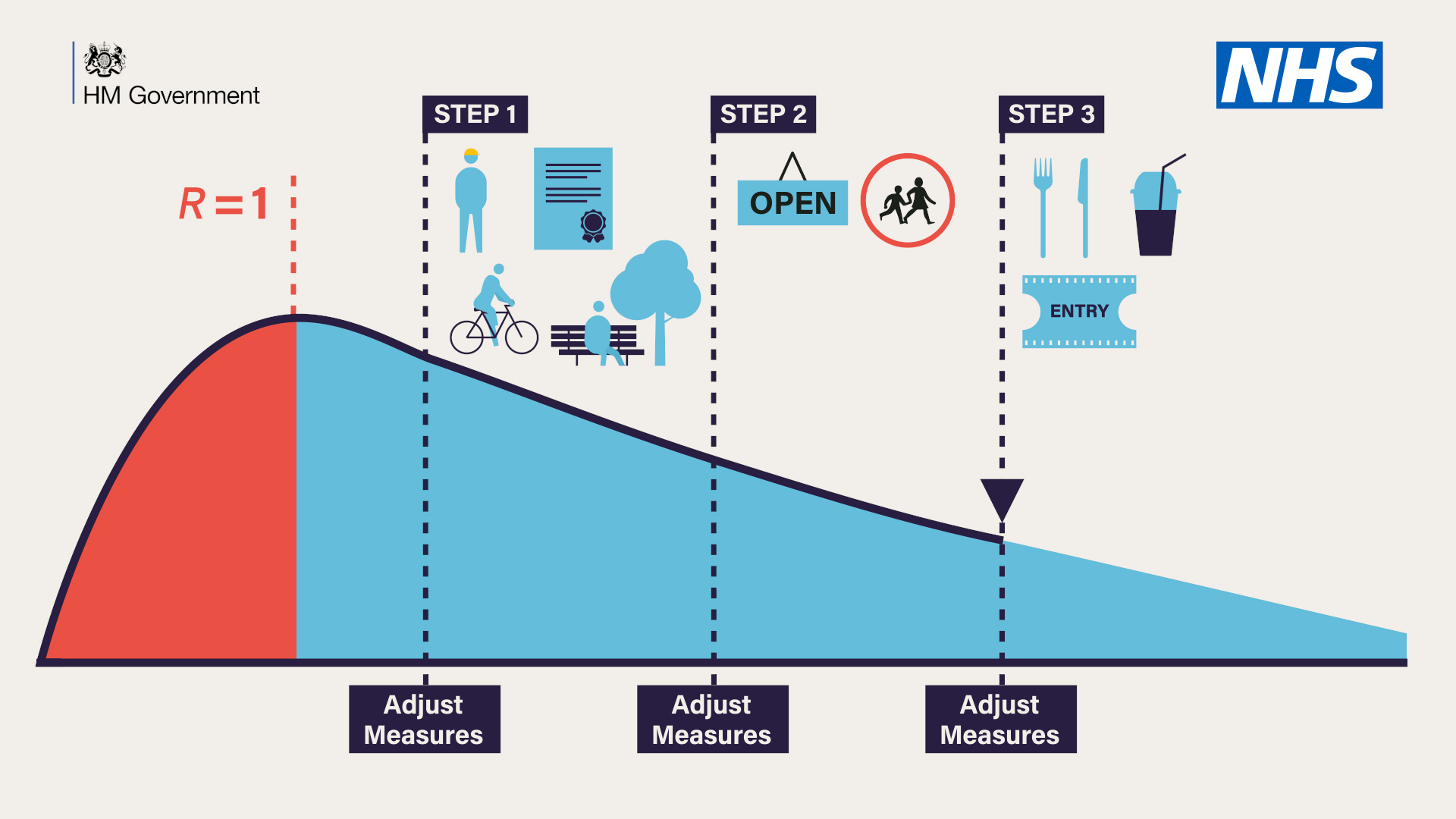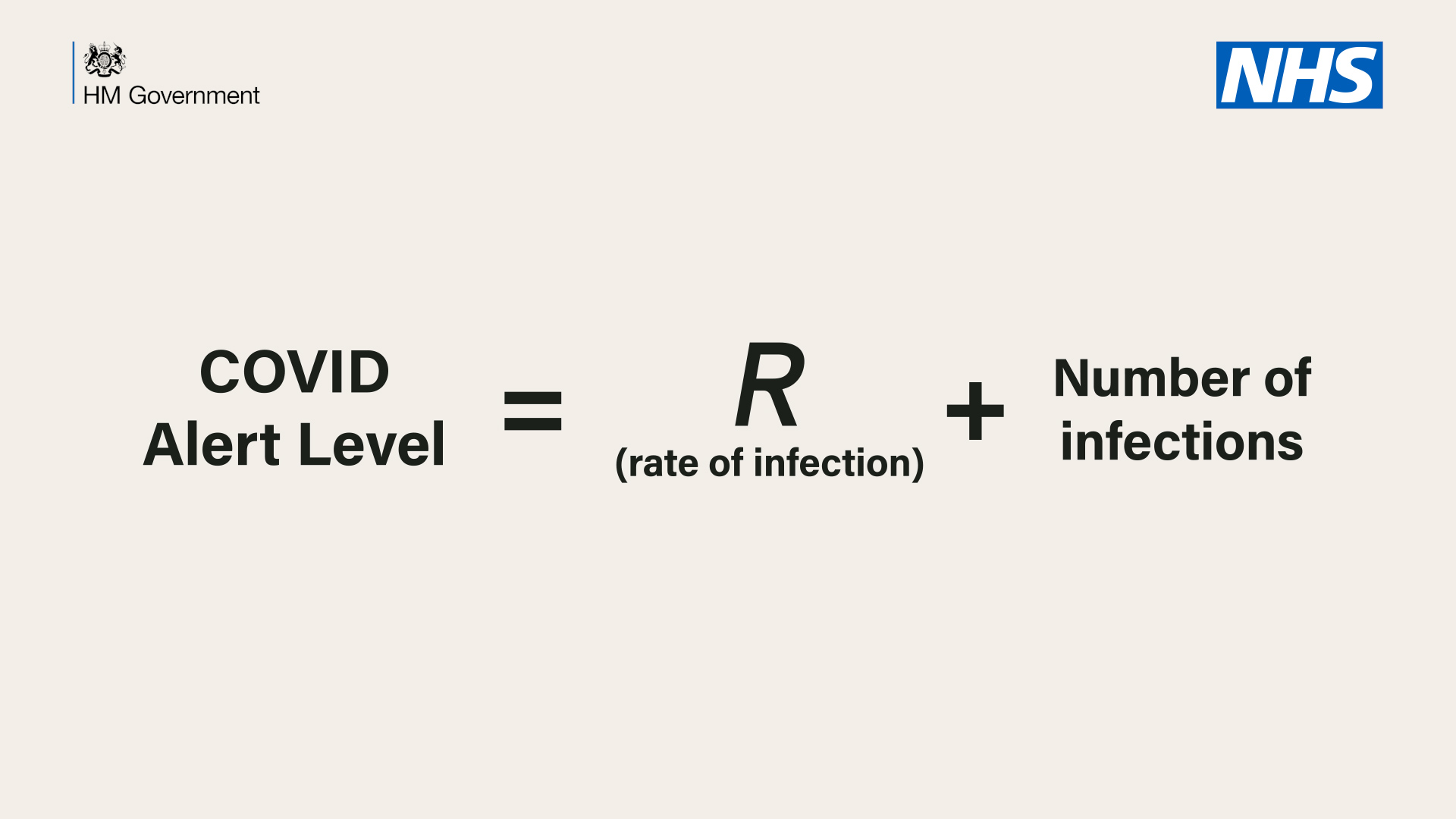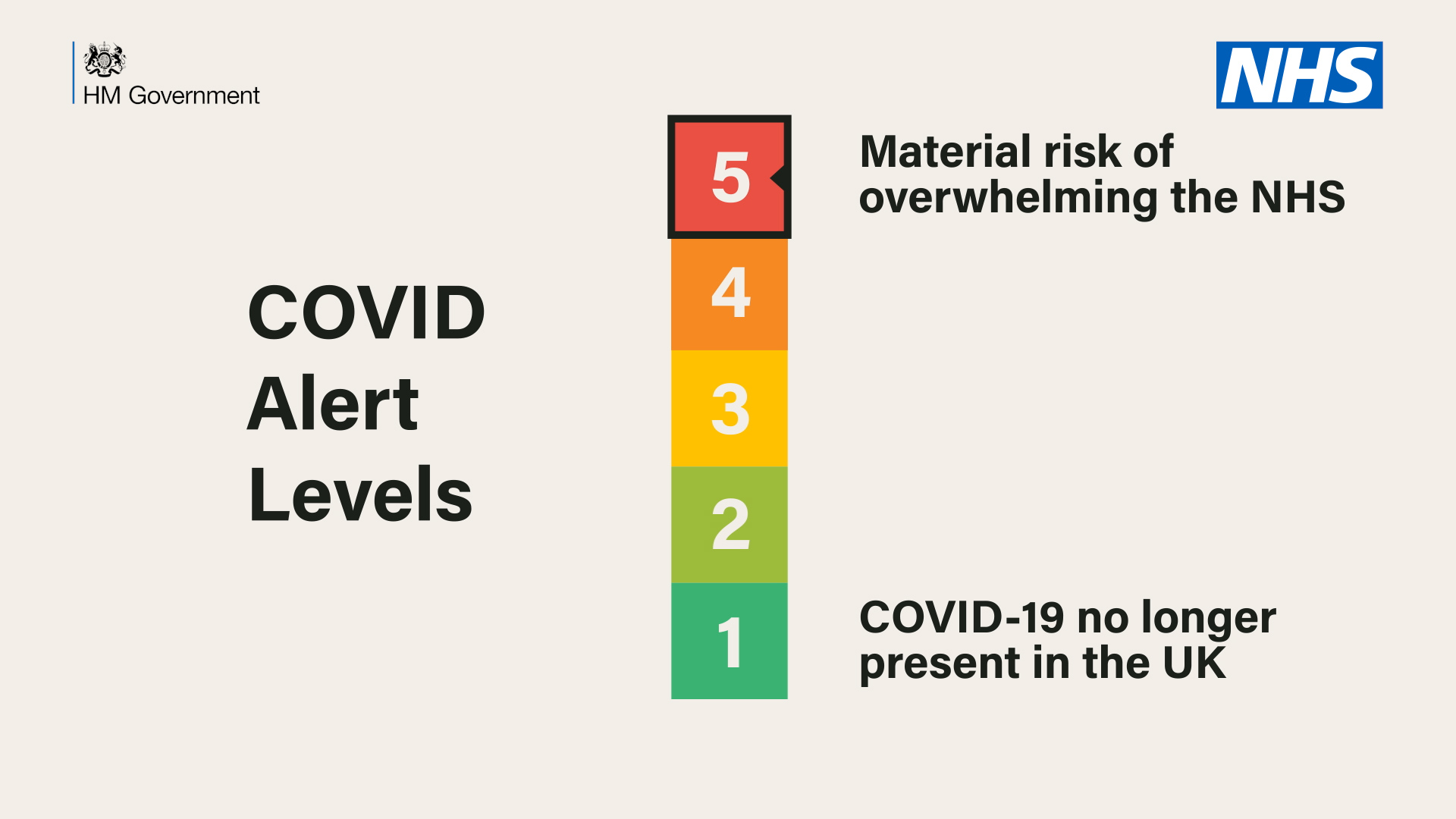Last night, Prime Minister Boris Johnson provided the latest update to the nation, and today the government has published a detailed 60-page document on the next steps as we face the unprecedented challenge of the COVID-19 pandemic.
It is now almost two months since the lockdown was first implemented. People across Tynedale and Ponteland have supported these rules overwhelmingly, and as a result, we are now past the peak of the virus. There are no regions where the epidemic appears to be increasing, the number of people in hospital with coronavirus, and the number of critical care beds in use is down significantly on this time last month.
However, this is an extremely serious pandemic, many thousands of people have very sadly lost their lives, and every single death is a tragedy.
The last two months have been a very difficult time for our country. I particularly want to pay tribute to the heroic efforts and sacrifice of our NHS and other key workers.
It is important to remember that this is not a short-term crisis. It is likely that COVID-19 will circulate in the population - both in the UK and around the world - long-term, possibly causing periodic epidemics. The only feasible, long-term solution lies in a vaccine or highly effective drug treatment. A vaccine could be more than a year away, and in a worst-case scenario – a vaccine may never be found.
The current lockdown cannot continue indefinitely. That is why the government has set out a three-stage roadmap to lift restrictions step-by-step in the coming weeks and months.
This will only happen if we successfully control the spread of the virus. If enough progress is not being made, the lifting of restrictions may be delayed.
Now is not the time to end the lockdown, but the government can take the first careful steps - as set out below - to modify the measures.
Step One
Step One will take place from this
Wednesday, 13th May.
When the lockdown was implemented on March 23rd, the government said that you should work from home, and only go to work if you must. It now must be stressed that anyone who can’t work from home, such as those in construction or manufacturing, should go to work.
To ensure that everybody is safe at work, the Department for Business, Energy and Industrial Strategy has established new guidance for employers to make workplaces COVID-secure. This has been developed with Public Health England and the Health and Safety Executive.
Click here to find out more.
Going outside more often
SAGE – the Scientific Advisory Group for Emergencies – has advised the government that the risk of infection outside is significantly lower than inside. This means that as of Wednesday, there are a number of things that you will now be able to do that you could not do before:
• spend time outdoors – for example sitting and enjoying the fresh air, picnicking, or sunbathing.
• meet one other person from a different household outdoors - following social distancing guidelines.
• exercise outdoors as often as you wish - following social distancing guidelines.
• use outdoor sports courts or facilities, such as a tennis or basketball court, or golf course – with members of your household, or one other person while staying 2 metres apart.
• go to a garden centre.
It is important that if you are showing coronavirus symptoms, or if you or any of your household are self-isolating, you
must stay at home.
Face coverings
As more people return to work, there will be more movement outside people’s immediate household. This means that you should aim to wear a face-covering in enclosed spaces where social-distancing is not always possible, and you come into contact with others that you do not normally meet, such as on public transport. This can help reduce the risk of transmission.
It is important to note that a face covering is not the same as a facemask, such as surgical masks or respirators used as Personal Protective Equipment used by healthcare workers. The government has issued guidance on how to make and wear a face covering,
which you can read by clicking here.
Step 2
The second step will not take place earlier than June 1st. The government currently plans for the following changes in the second stage, depending on the latest data and COVID-19 Alert level:
A phased return for early years settings and schools
The government expects children to be able to return to early years settings, and for Reception, Year 1 and Year 6 to be back at school in smaller sizes from this point. This will ensure that the youngest children and those preparing for the transition to secondary school have the maximum amount of time with their teachers.
It is the government’s ambition that all primary school children should be able to return to school for a month before the summer, and for Year 10 and 12 pupils with important exams next year to have some time with their teachers too, in support of continued remote learning.
Opening non-essential retail
Subject to retailers being able to follow new COVID-19 Secure guidelines, the intention is that non-essential retail will open in phases from June 1st. Guidance on which businesses will be covered and when will be issued shortly.
Permitting cultural and sporting events for broadcast
These will take place behind closed doors to avoid the risk of large-scale social contact.
Social and family contact
I understand that for the isolated and vulnerable, these restrictions have been extremely disruptive. The government is considering a range of options to reduce the most harmful social effects and to make the measures more sustainable.
SAGE is examining whether, when and how it can safely change the regulations to allow people to expand their household group to include one other household in the same exclusive group. However, at present, the advice remains the same - you should not meet others from outside your household.
Step 3
In Step 3, the government's aims to open at least some of the remaining business premises that have been required to close. This includes hairdressers and beauty salons, restaurants, pubs, hotels, places of worship and cinemas. These venues will have to follow COVID-19 Secure guidelines.
As per step 2, this will take place when the assessment of risk warrants further adjustments to the remaining measures. This will be no earlier than 4th July.
Some venues which are crowded by design, and where it may be difficult to enact social distancing may not be able to safely re-open at this point.
Monitoring Coronavirus Levels
In order to chart progress in the weeks and months ahead, the government has announced a new COVID-19 Alert Level. This will be monitored and set by a new Joint Biosecurity Centre.
The alert level will be primarily affected by two key factors:
1. The R – that’s the reproduction rate of infection. This number is the average number of people one infected person passes coronavirus on to.
You can find out more about R by watching this video.
2. The number of coronavirus cases in the UK.
The lower the level, the fewer social distancing measures, but the higher the level, the tougher and stricter we will have to be.
The alert levels are:
Level 1: COVID-19 is not known to be present in the UK.
Level 2: COVID-19 is present in the UK, but the number of cases and transmission is low.
Level 3: A COVID-19 epidemic is in general circulation.
Level 4: A COVID-19 epidemic is in general circulation; transmission is high or rising exponentially.
Level 5: As level 4, and there is a material risk of healthcare services being overwhelmed.
Over the period of the lockdown, Britain has been in Level 4, but we are now in a position to begin to move into Level 3.
We can and will control the virus if we all stay alert. That means staying at home as much as possible, working from home if you can, limiting contact with other people, keeping your distance when you go out, and washing your hands regularly.
For the small minority of people who do break the rules, bigger fines starting at £100 can now be handed out by the police.
As ever, for further information on the support available for business, individuals and employers, please visit my website -
guyopperman.co.uk/coronavirus, and please get in touch with me in the usual way if you require assistance.
This Thursday at 6:30pm, I’ll be answering your questions on Coronavirus live on Facebook. Please submit your questions by
clicking here.
Britain will get through this. As a country, we have faced many tough challenges before. But we all have a responsibility to play our part and make this plan work. So remember, stay alert, so we can control the virus and save lives.









